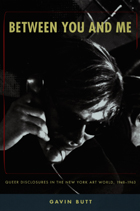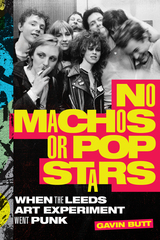
Focusing on the period from 1948 to 1963, Butt draws on the accusations and denials of homosexuality that appeared in the popular press, on early homophile publications such as One and the Mattachine Review, and on biographies, autobiographies, and interviews. In a stunning exposition of Larry Rivers’s work, he shows how Rivers incorporated gossip into his paintings, just as his friend and lover Frank O’Hara worked it into his poetry. He describes how the stories about Andy Warhol being too “swish” to be taken seriously as an artist changed following his breakthrough success, reconstructing him as an asexual dandy. Butt also speculates on the meanings surrounding a MoMA curator’s refusal in 1958 to buy Jasper Johns’s Target with Plaster Casts on the grounds that it was too scandalous for the museum to acquire. Between You and Me sheds new light on a pivotal moment in American cultural production as it signals new directions for art history.


Contributors look to radical networks of care, sex, and activism present within diverse queer communities including HIV/AIDS organizing, the Wages for Housework movement, New York’s Clit Club community, and trans/queer collectives in San Francisco. The issue also includes a dossier of shorter contributions that offer speculative provocations about the radicalism of queer commonality across time and space, from Gezi Park uprisings in Turkey to future visions of collectivity outside of the internet.
Contributors
Arlen Austin, Zach Blas, Gavin Butt, Beth Capper, Ashon Crawley, Amalle Dublon, Macarena Gomez-Barris, Christina Hanhardt, Diarmuid Hester, Nadja Millner-Larsen, José Esteban Muñoz, Cenk Ozbay, Evren Savci, Eric Stanley
READERS
Browse our collection.
PUBLISHERS
See BiblioVault's publisher services.
STUDENT SERVICES
Files for college accessibility offices.
UChicago Accessibility Resources
home | accessibility | search | about | contact us
BiblioVault ® 2001 - 2024
The University of Chicago Press









